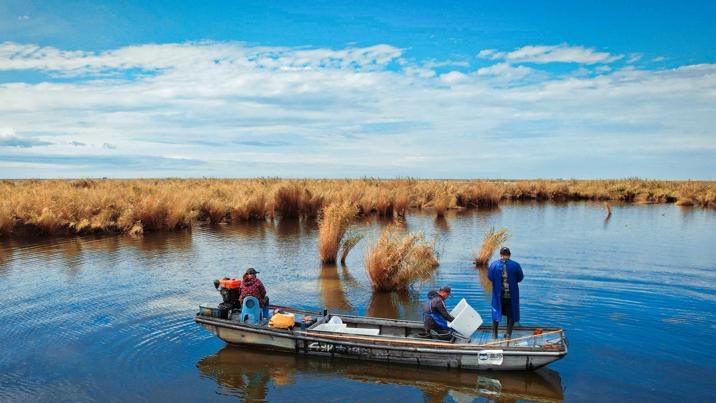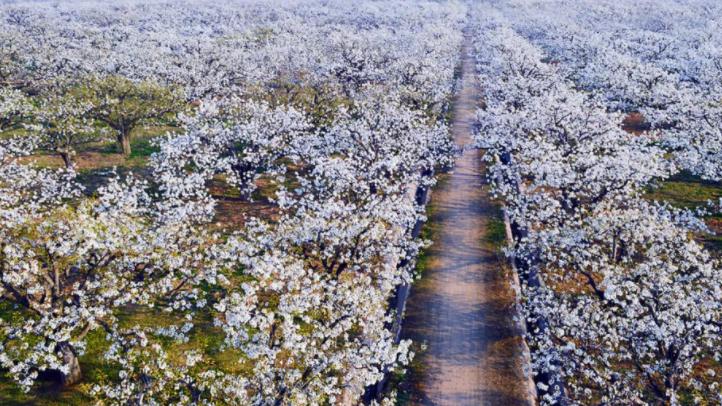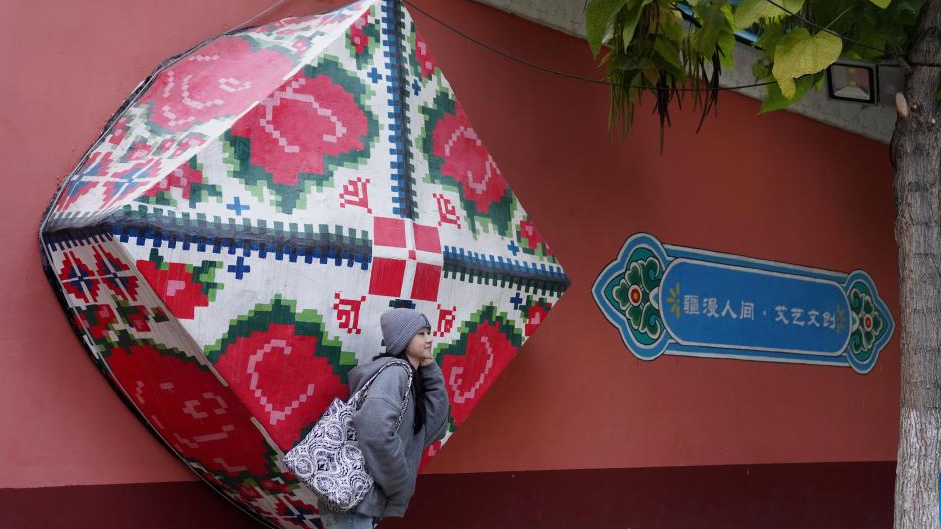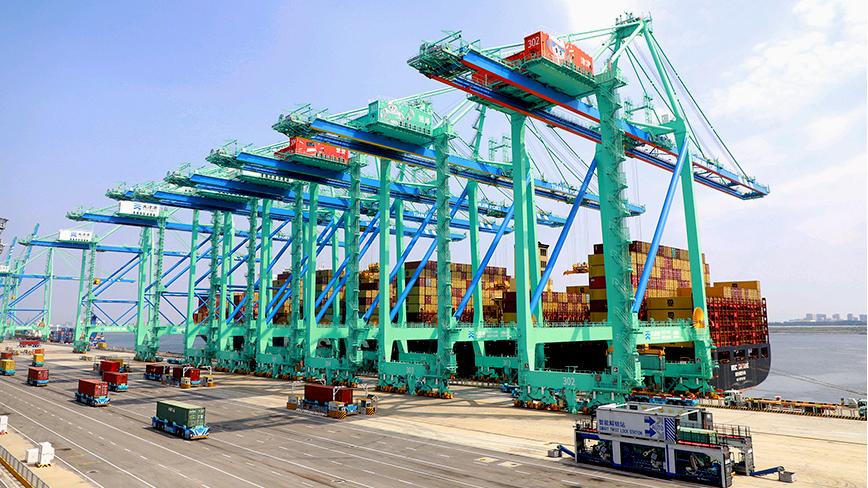Enterprise innovation turns deserts into farmlands in Xinjiang
URUMQI, Oct. 6 (Xinhua) -- Although close to the desert, a cotton field on the outskirts of Shihezi City, northwest China's Xinjiang Uygur Autonomous Region, has become a high-yield field full of vitality thanks to an advanced intelligent agricultural system.
The system, featuring integrated irrigation of water and liquid fertilizer, is one of the major factors for Xinjiang to become China's main cotton-producing base and a leader in modern agricultural development.
The new system adds another average yield of over 1,500 kilograms per hectare to the cotton field, which is more than 20 hectares in size.
"The system forms a network by collecting data such as moisture and humidity, and agricultural decisions are all determined based on the data," said Xie Xingguang, director of the local agriculture department.
The system's most important function is to realize smart water-saving drip irrigation in Xinjiang, reducing the irrigation water volume from 10,500 cubic meters per hectare around 1950s to the current 5,250 cubic meters per hectare aross the region.
"We introduced a German-made drip irrigation equipment production line in 1999, and the price at that time was as high as 4.5 million yuan (about 640,000 U.S. dollars)," said Ma Zhandong, a smart agricultural engineer of Xinjiang-based Tianye Group, a state-owned enterprise affiliated to the Xinjiang Production and Construction Corps.
After going through repeated research, Ma and his colleagues finally realized the localization of a drip irrigation network, which can accurately reach the roots of each and every plant through shallow-buried pipelines and effectively channel water and fertilizer into them.
"The investment in the drip irrigation system per hectare dropped to 6,750 yuan, more than 8,200 yuan lower than similar domestic products," Ma said.
Since its establishment in 1996, Tianye has developed into a large-scale enterprise involving chemical industry, modern agriculture, mining, and other fields. Its water-saving drip irrigation products are sold at home and abroad.
Water resources are among the most critical factors restricting agricultural development in Xinjiang. Thanks to the transformation from "watering the land" to "irrigating the crops," agricultural irrigation efficiency has greatly improved and crop planting areas have also grown.
In 2023, Xinjiang's cotton output reached 5.112 million tonnes, accounting for over 90 percent of the country's total. Its grain output exceeded 20 million tonnes, increasing by over 3 million tonnes, accounting for more than 30 percent of the country's total.
In the meantime, some enterprises have focused on developing high-level agricultural machinery suitable for Xinjiang's geographical environment and agricultural needs, which is also a key factor to the development of modern agriculture in a vast and sparsely populated region like Xinjiang.
Based on the production features of cotton and other crops, Xinjiang urgently needs to develop various kinds of agricultural machines that can realize precision sowing and picking.
Chen Xuegeng, an academician of the Chinese Academy of Engineering and leader of a mulching machine development team under Shihezi University, in 2003 developed a series of machines that realize the integrated mechanical operation of mulching film laying and cotton sowing in Xinjiang for the first time. The operation efficiency of such a machine is equivalent to the work of 300 people.
The continuous efforts of local enterprises, multifunction tractors, modernized irrigation systems, and unmanned seeders equipped with Beidou navigation systems have turned more deserts into farmlands in Xinjiang while freeing more people from hard farm work.
In 2023, nearly 7,000 cotton pickers were put into mechanized harvesting in Xinjiang, and the mechanization rate increased to over 85 percent from 35 percent in 2014.
More than a dozen agriculture-related listed companies have been bred successively in Xinjiang, and their businesses cover agricultural machinery and equipment manufacturing, animal husbandry, deep processing of agricultural products and other aspects.
Modern farms have mushroomed in northwest China's vast deserts in Xinjiang, making it an advanced region for developing large-scale, intensive, mechanized and intelligent modern agriculture.?
Photos
Related Stories
Copyright © 2024 People's Daily Online. All Rights Reserved.









